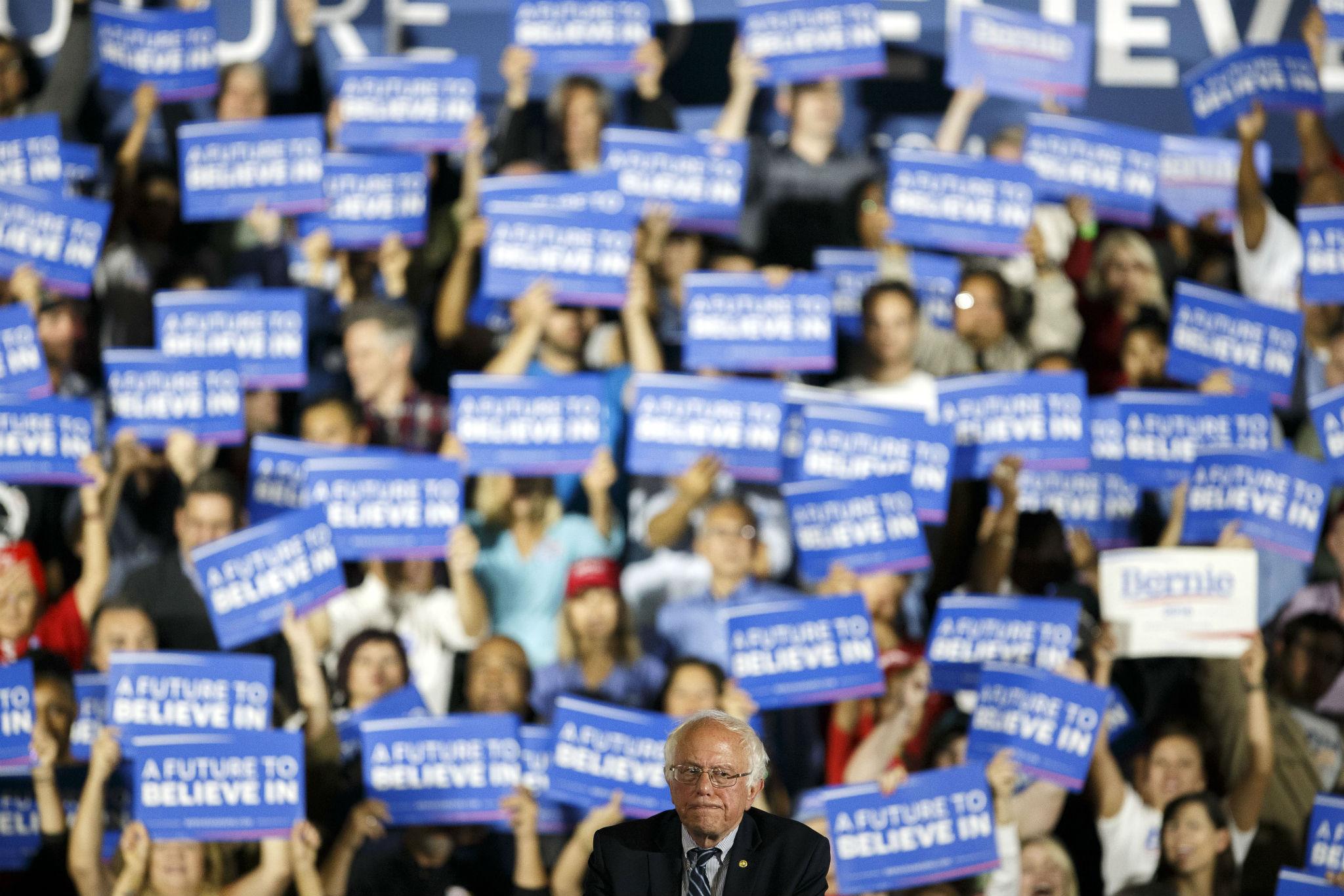Bernie Sanders' new task is to convince his supporters to back Hillary Clinton
Sanders supporters see him as a messianic figure that will deliver them from compromises with mainstream politicians, bankers and corporations. But compromise is exactly how social democracy came about in Europe

The US presidential primaries are over. Hillary Clinton is the Democratic presumptive nominee, but her contender Bernie Sanders pledged to continue the race until the party convention in July, when the party’s election platform is finalised. Despite the tensions, the two have recently met, and renewed their commitment to fight together against Republican candidate Donald Trump. Sanders is likely to endorse Clinton only after the convention. His team wants to keep the pressure high to obtain key policy concessions in the final Democratic platform.
Clinton will hopefully take on board demands like universal health care or a federal $15-an-hour minimum wage, but it might not be enough. Whatever the outcome of the negotiations, Sanders will have a hard time convincing his most vocal supporters, who want him to run as an independent. For months, they have been waging a spontaneous parallel campaign against the former Secretary of State. They depict her as the quintessential establishment candidate: responsible for the wars in Libya and Syria, colluded with Wall Street, and in favour of neoliberal policies that harm the poor.

Many who voted for the Vermont senator will not vote for Clinton, and some might even switch to Trump. According to a recent poll, if Sanders runs as a third candidate in November, he would get 18 per cent of the votes, and Trump would defeat Clinton.
These trends hint at a seismic change in American politics. The race for the White House is no longer a fight between Democrats and Republicans. It is turning into a clash between the establishment, represented by Clinton, and rising popular dissent, converging on Donald Trump and Bernie Sanders.
While Trump enjoys manipulating crowds with wild promises and hate-filled speeches, Sanders’ politics is at odds with some of his followers. He is an old-school social democrat who believes in grassroots mobilisation and citizen participation. He also thinks that we need tough negotiations with the powerful institutions that govern society, in order to bring about tangible change in people’s lives. And this is exactly what he did in the 1980s when he was mayor of the small city of Burlington, Vermont.
The masses of supporters that have rallied around him play by different rules. They are fed up with a system that made them economically insecure, closed down public spaces that nurtured strong ties between fellow citizens, and broke down all sense of community and belonging. They are driven by a powerful mix of anger and hope that is hard to dismiss. Their grievances are expressed through social media and in mass rallies, where people are able, albeit fleetingly, to connect with others sharing the same plight. They see Sanders as a messianic figure that will deliver them from the evils and injustices of the current dispensation all at once, avoiding compromises with mainstream politicians, bankers and corporations.
Sanders is now tasked with a difficult mission: the transformation of his campaign into a long-term progressive alternative to the American establishment. This inevitably means big changes within the Democratic Party, or, perhaps more likely, the creation of a new political formation after November. For now, Sanders has no choice but to back the Democratic nominee. The danger of a Trump victory is too big a risk to take.
He has to convince his supporters to set aside their deep dislike for Clinton and focus on the long run. He should explain to them that the golden era of European social democracy was based on a broad consensus encompassing parties from left to right, trade unions, churches and civil society organisations fighting against various forms of discrimination. Behind social democracy, there were national societies, composed of popular associations that maintained strong ties with their members. That world has little to do with a politics of protracted protest based on an all-or-nothing approach, and the unstable solidarities of social media activism and mass gatherings.
To be successful, Sanders’ movement needs to build healthy communities from the ashes left by the relentless advance of corporations and powerful lobbies in all aspects of our lives. Putting together a set of policies to reverse the disasters of neoliberalism is relatively easy. The tough part is creating a vibrant society of citizens ready to take control of the political and economic institutions that are working against them.
Join our commenting forum
Join thought-provoking conversations, follow other Independent readers and see their replies
Comments
Bookmark popover
Removed from bookmarks